Former music venue will house an ancient stone used in coronation ceremonies since medieval times
Dutch practice Mecanoo has transformed a city hall in Scottish city Perth into an event space and museum which will house an ancient block of stone used in coronations since the medieval era.
The practice behind the Library of Birmingham has unveiled images of the completed refurbishment of Perth City Hall, a neo-classical former music venue built in 1914.
The Stone of Scone, also called the Stone of Destiny, was used in coronations of Scottish kings before it was captured by English king Edward I in 1296.
The 25 inch-long block of red sandstone, on which monarchs sat while being crowned, was then used in coronations of English and later British monarchs for more than 500 years, including last year’s coronation of King Charles III.
It has had a colourful history, being split in half by a Suffragette bomb in 1914, stolen and briefly taken to Scotland by a group of Scottish nationalists in 1950 and then permanently returned to its country of origin in 1996.
It is the centrepiece of the new museum, housed in a two-storey oak box designed by Mecanoo in the middle of the building’s main hall.
The ground floor of the box contains two rooms, an entrance space where visitors are shown an animated film revealing the history of the Stone and a back room containing the ancient artefact itself.
The 3,500 sq m scheme, designed for Perth and Kinross council, has also seen the construction of a balcony wrapping around the edge of the main room’s first floor, providing gallery space for exhibits showcasing Scotland’s history.
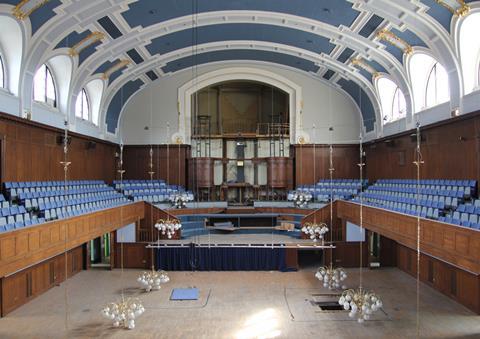
The balcony also provides access to the upper level of the box, a flexible gallery space currently housing a temporary exhibition on unicorns, the mythical national animal of Scotland, which also includes a unicorn sculpture placed on the top of the box.
Mecanoo has also lowered the arched windows of the building’s other main space, the lesser hall, to ground level to allow in more natural light and views of the adjacent 15th century St John’s Kirk church.
This space has been transformed into a communal lobby, cafe and event venue accessed through a new bronze door crafted on Black Isle, a peninsula on the east coast of Scotland.
Mecanoo has offices in London, New York and Taiwan but is based in the Dutch city of Delft.
Aside from the Library of Birmingham, which was opened in 2013, the firm’s major projects in the UK include three schemes in Manchester, the leisure complex called Home, a student accommodation block called Kampus and an engineering building for the University of Manchester.




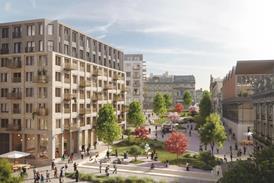
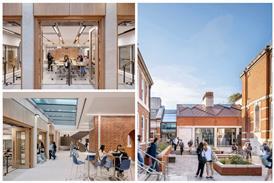



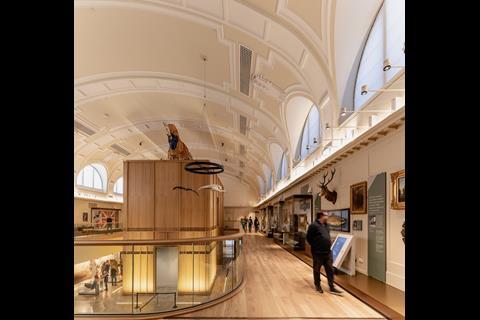
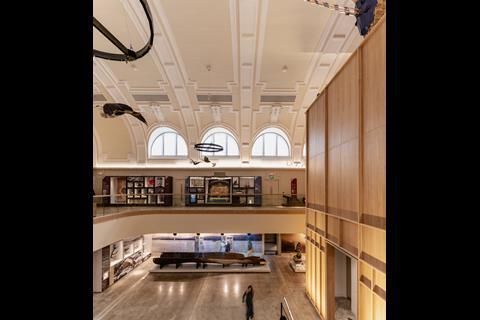
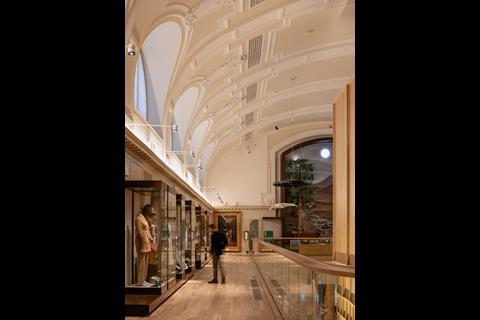
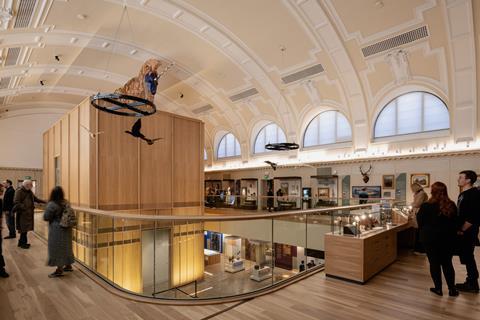
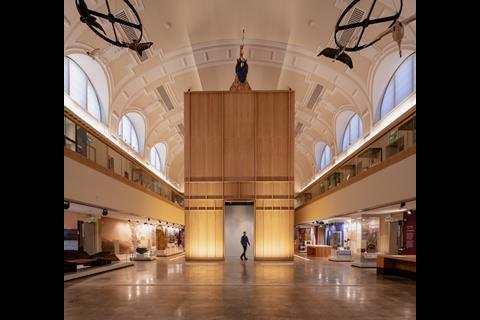
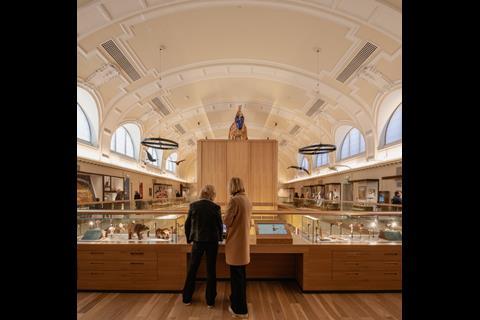
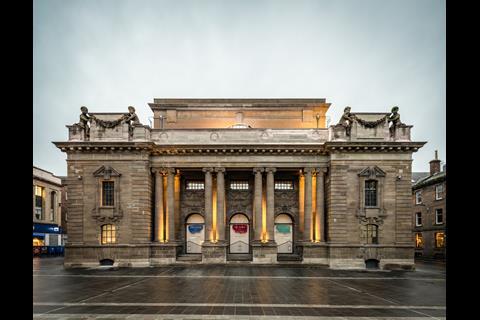
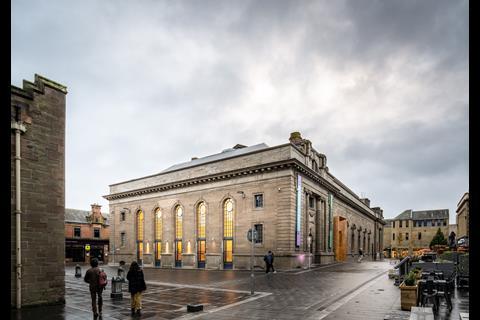
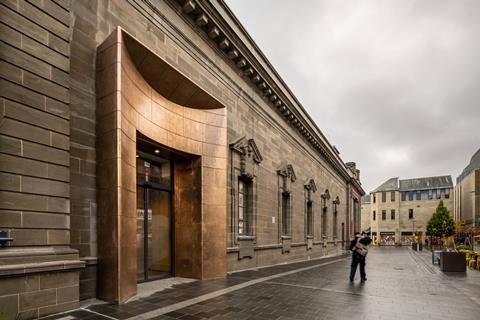
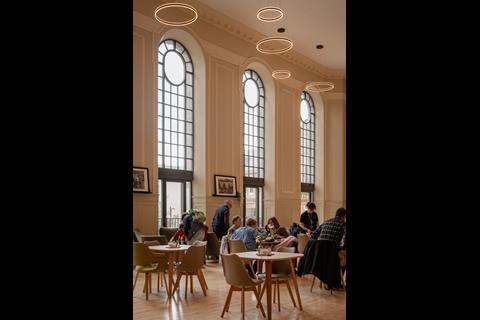
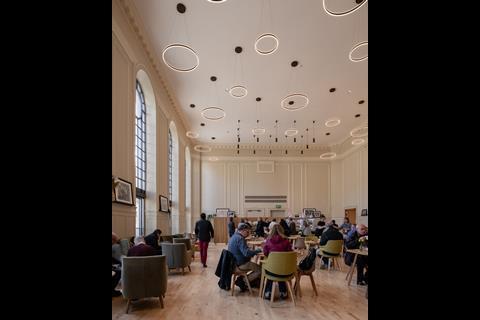
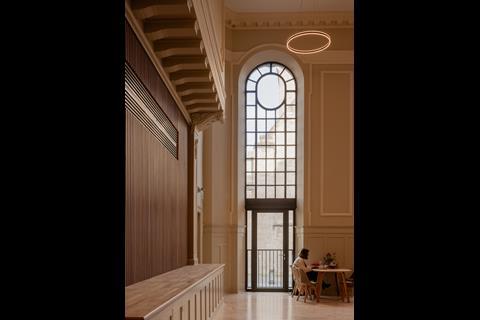
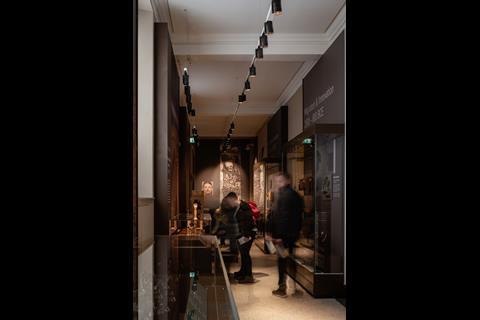
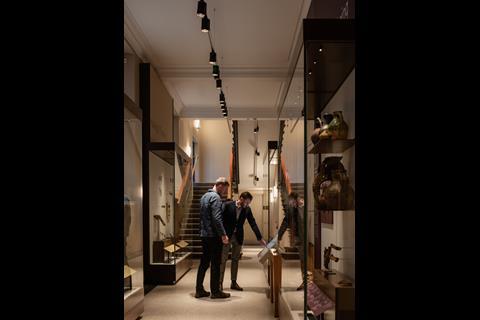
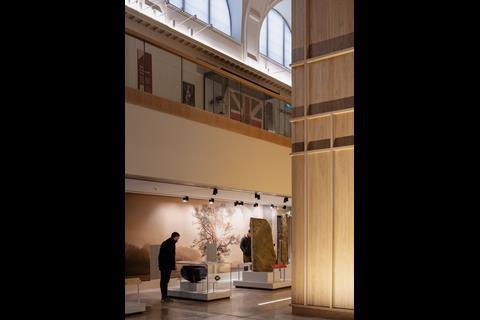







No comments yet